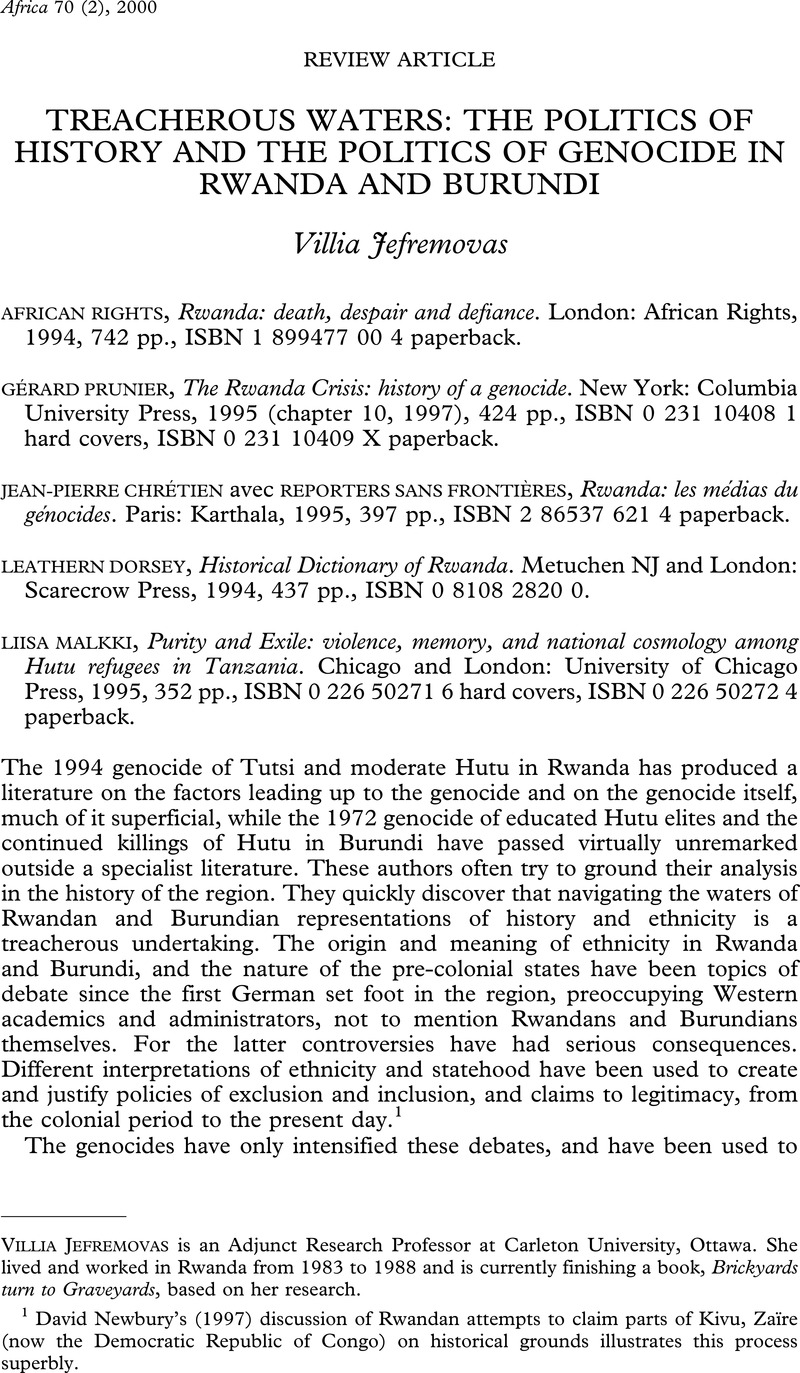Crossref Citations
This article has been cited by the following publications. This list is generated based on data provided by Crossref.
Daley, Patricia
2006.
Ethnicity and political violence in Africa: The challenge to the Burundi state.
Political Geography,
Vol. 25,
Issue. 6,
p.
657.
McDoom, Omar Shahabudin
2012.
The Psychology of Threat in Intergroup Conflict: Emotions, Rationality, and Opportunity in the Rwandan Genocide.
International Security,
Vol. 37,
Issue. 2,
p.
119.
2016.
Narrating and Teaching the Nation.
p.
225.





